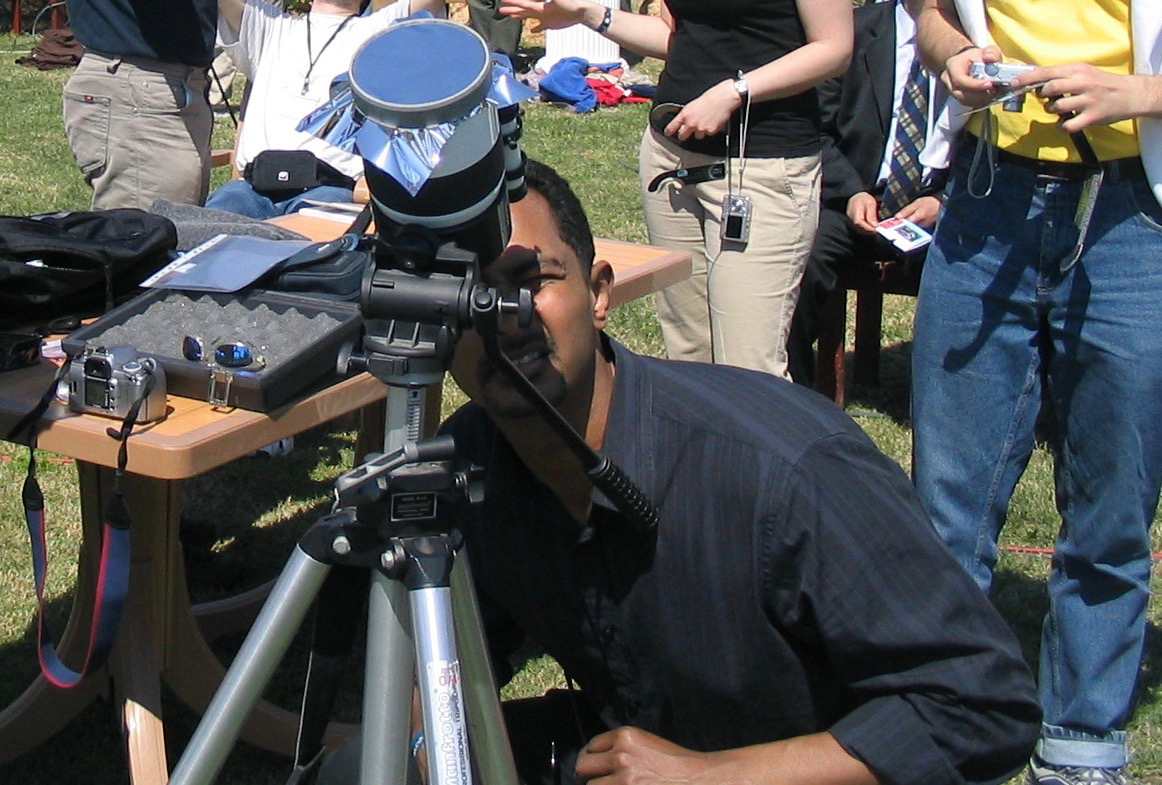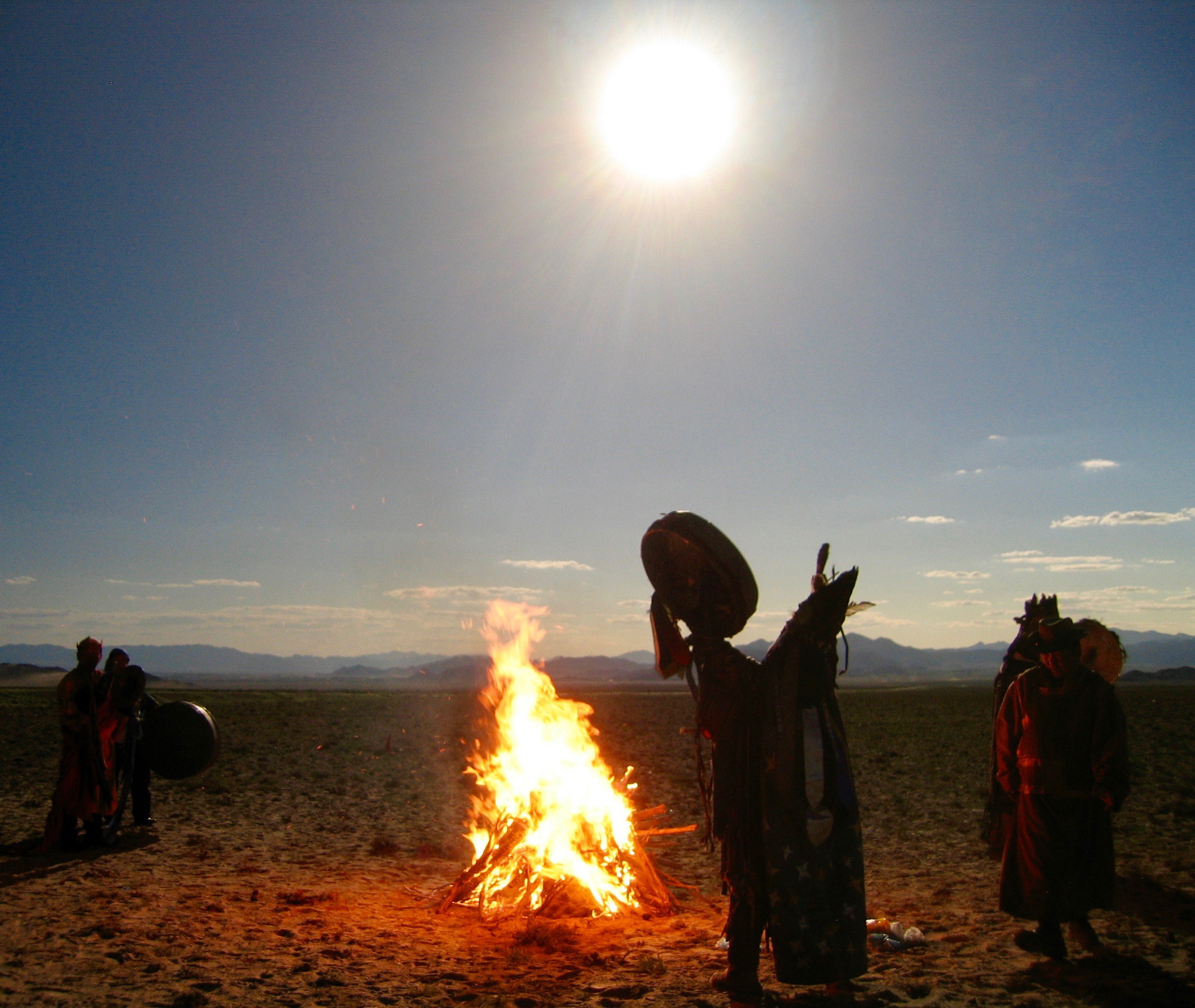TORONTO, Monday, June 19, 2017 – The upcoming total eclipse of the Sun, on Aug. 21, is already generating excitement with York University astronomers. To witness it as a total eclipse, Canadians will have to head south to the United States, though it will be visible as a 70 per cent partial eclipse from Toronto. The last total solar eclipse to encompass parts of Canada was 38 years ago and that was mid-winter, say York U experts who are available to discuss the celestial spectacle.

Ray Jayawardhana, astrophysicist and Dean of the Faculty of Science, taking in the total solar eclipse in Turkey
"Even in this era of live-streaming, it's worth making the effort to see a total solar eclipse in person," says Ray Jayawardhana, astrophysicist and Dean of the Faculty of Science. "It's an incredible and immersive experience, one that you're likely to remember for the rest of your life. Photographs and video can't fully convey the sense of wonder."
York U Professor Paul Delaney says, “This is a must see event. The next total solar eclipse to similarly be readily available to people in the United States and Canada is not until 2024.”
Jayawardhana ventured across the globe to see two previous total eclipses of the Sun, one in Turkey in 2006 and another in 2008 when he traveled to a remote corner of the Altai mountains in western Mongolia, enduring a 16-hour off-road trek in an old van.

A Shaman ceremony during a total solar eclipse in Mongolia where Ray Jayawardhana, astrophysicist and Dean of the Faculty of Science, was to watch the event
For those who cannot head south, York U will mount a Solar Fair for the eclipse from noon to 4pm on August 21 to allow people to come and safely view the partial eclipse with solar glasses and telescopes.
There will also be live streaming of the totality of the eclipse and science related demonstrations.
Safety is paramount as looking at the Sun directly at any time is dangerous. More information on solar eclipse safety can be found on the NASA website.
"The August 21 total eclipse is likely to be among the most watched in recent history, since it will be relatively easy for tens of millions to people to reach its path of totality," says Jayawardhana.
York U experts:
Paul Delaney, expert in astronomy and space exploration
Ray Jayawardhana, expert in astronomy and astrophysics
To see the path of totality, view the map.
Links to images of Ray Jayawardhana in Turkey watching the total solar eclipse and in Mongolia at a Shaman ceremony during a total solar eclipse:
http://news.yorku.ca/files/RayJayawardhana_TotalSoalrEclipse2006inTurkey.jpg
http://news.yorku.ca/files/ShamanCeremonyDuringTotalSolarEclipse_Mongolia2008.jpg
30-
York University is known for championing new ways of thinking that drive teaching and research excellence. Our students receive the education they need to create big ideas that make an impact on the world. Meaningful and sometimes unexpected careers result from cross-discipline programming, innovative course design and diverse experiential learning opportunities. York students and graduates push limits, achieve goals and find solutions to the world’s most pressing social challenges, empowered by a strong community that opens minds. York U is an internationally recognized research university – our 11 faculties and 26 research centres have partnerships with 200+ leading universities worldwide. Located in Toronto, York is the third largest university in Canada, with a strong community of 53,000 students, 7,000 faculty and administrative staff, and more than 295,000 alumni. York U's fully bilingual Glendon campus is home to Southern Ontario's Centre of Excellence for French Language and Bilingual Postsecondary Education.
Media Contacts:
Sandra McLean, York University Media Relations, 416-736-2100 ext. 22097, sandramc@yorku.ca
Margaret Mroziewicz, York University Faculty of Science, 416-886-5189, margaret@yorku.ca

